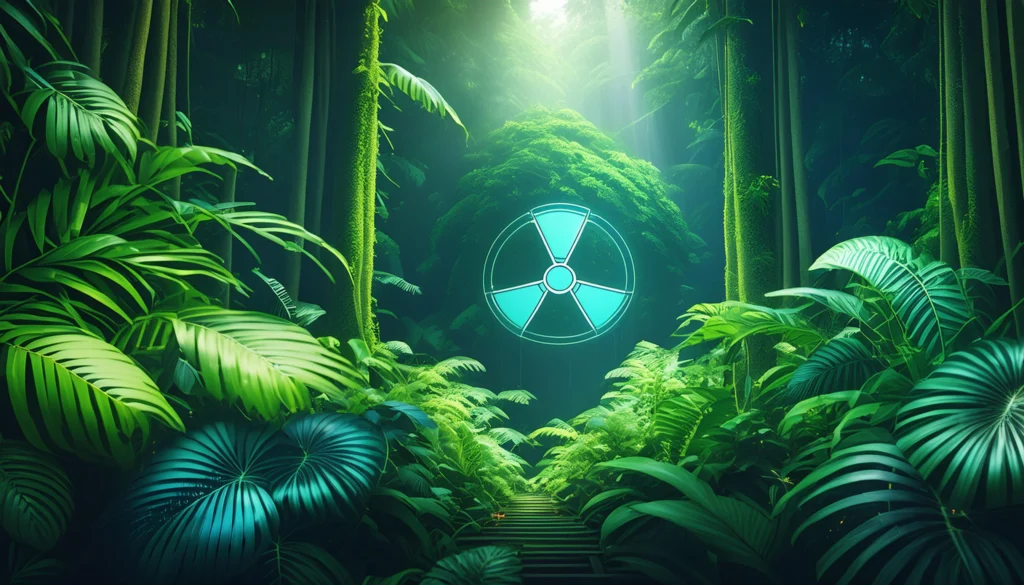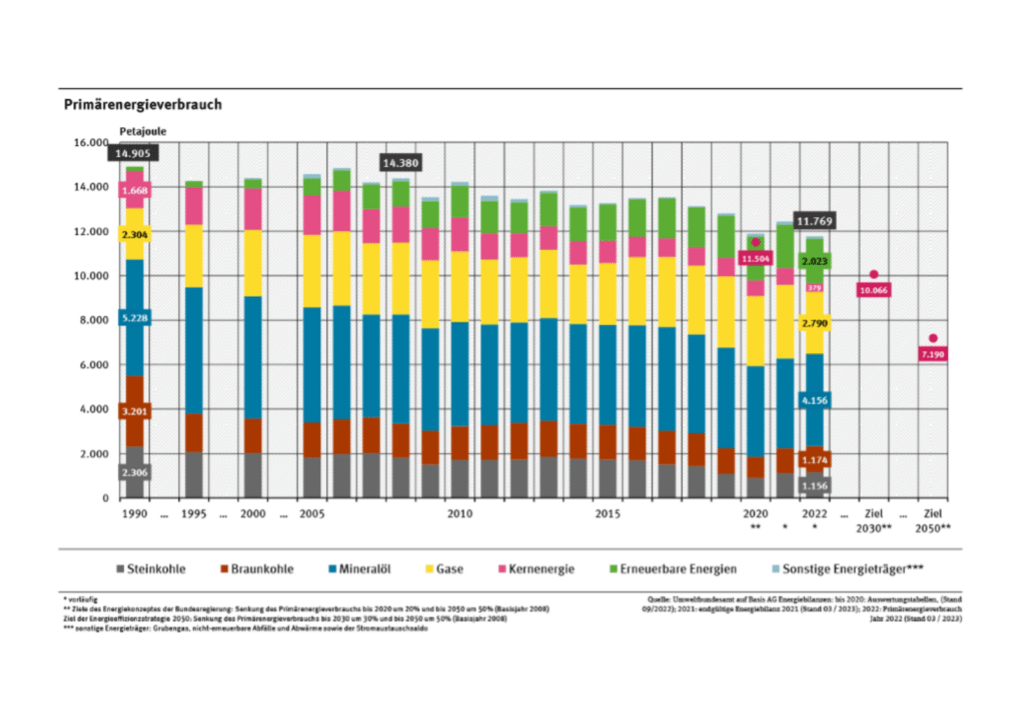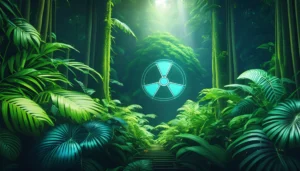In recent years, nuclear power has repeatedly been a controversial topic. Many people are asking themselves: does it really make sense to shut down nuclear power plants? What does the future of energy supply look like? In a recent podcast interview, our Managing Director Ole Renner shared his thoughts and expertise on these questions. For those who prefer listening to reading: You can listen to the full interview view here.
However, we have also summarised the key points of the interview for you in written form. Read on to find out more.

Nuclear power: a small component in the energy mix
Nuclear power plants are used to produce electricity. In Germany, around 50% of electricity already comes from renewable energies, while nuclear power only contributed around 10% in 2020. In terms of total energy consumption (electricity and heat), the share of nuclear energy has never exceeded 12% since 1990. The sometimes heated debate about nuclear power therefore seems exaggerated.

Costs and efficiency of nuclear power
Although nuclear power is a stable source of energy, it is also one of the most expensive. If you consider the entire life cycle of a nuclear power plant, from construction to disposal, the costs are enormous. A comparison of the costs of nuclear power and renewable energies is provided, for example, by a Elaboration of the Scientific Service on behalf of the German Bundestag (see page 18 of the report, for example).
Problems with the cooling of nuclear power plants could worsen
Another aspect that is often overlooked is the situation in France last year. Several nuclear power plants there had to be throttled back in the summer. The reason for this was a lack of cooling water. Due to low rainfall and high temperatures, the rivers that are normally used to cool the nuclear power plants were already so warm that they could no longer be used for cooling. These problems could be further exacerbated by climate change.
Renewable energies: The path to the future
Mr Renner is therefore firmly convinced that we should focus on renewable energies. Wind and solar energy are the main players and their costs are lower compared to nuclear power. The challenge is to manage the volatility of these energy sources. By "volatility" here we mean the inconsistency with which wind and solar energy are available.
Hydrogen: a promising energy storage medium
The only way to compensate for this volatility is through energy storage. Hydrogen offers the possibility of storing surplus energy from renewable sources and releasing it again when needed.
It makes particular sense to produce hydrogen where renewable energy sources regularly produce large surpluses, such as offshore wind farms in the North Sea. This cheaply produced hydrogen can then be "converted back into electricity" with a time delay using fuel cells. Alternatively, it can simply be added to the existing natural gas network. We could use the large gas storage facilities, which many people have been aware of since the Ukraine crisis at the latest, to store this environmentally friendly hydrogen.
Current studies show that our existing natural gas network is already capable of absorbing up to 20% of hydrogen, and developments in this area are progressing rapidly.
Decentralised energy supply:
A key to the energy transition
A significant step towards tackling the volatility of renewable energies is already underway. More and more people are deciding to install photovoltaic systems on their roofs. The focus here is on self-consumption: they are endeavouring to use the electricity they generate themselves as efficiently as possible. In addition, many are equipping their homes with small battery storage systems. Each electric car also contributes to this system with its storage capacity.
If you add up all these decentralised, smaller batteries, the total storage capacity is impressive. Mr Renner is convinced that this decentralised energy supply is an essential building block for the future energy solution in Germany.
This also enables building owners to become more independent of price fluctuations on the market and contribute to the energy transition.
Conclusion
The energy transition is a complex endeavour. While nuclear power plants had a place in our energy supply in the past, it is becoming clear that renewable energies in combination with efficient storage technologies and decentralised energy supply are the key to the future.
At MEF MyEnergy.Farm GmbH, we are committed to developing customised energy solutions for you. Our vision is clear: a sustainable and efficient energy future for all, in which nuclear energy plays a considered role.
Do you have any further questions?
If you have any further questions about renewable energies or other energy-related topics, our Managing Director Ole Renner will be happy to help. Please use our Contact formto get in touch with him directly. We look forward to exchanging ideas with you!










